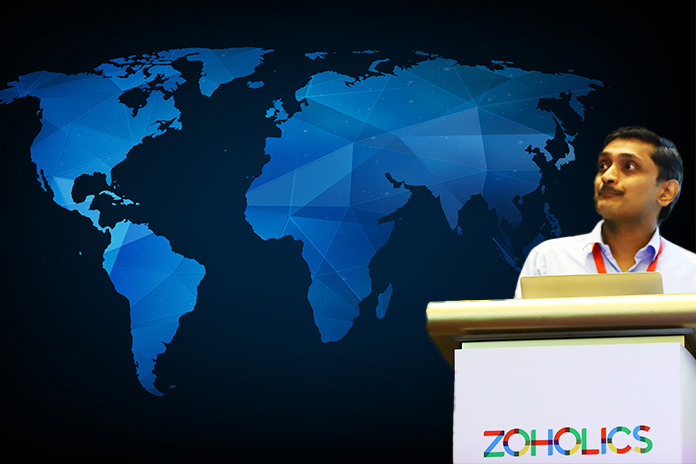
THE deepening entrenchment of technology as a result of the pandemic measures has helped to identify companies that have been helpful to society.
While some have seen the opportunity to line their pockets, others have kept to their key objectives.
Zoho has always been about building its role as the provider of the one software platform for an entire organisation to transform itself and operate on.
“We’d like to be the operating system for businesses,” explains Gibu Mathew (pictured above), VP & GM APAC for Zoho Corporation.
Zoho’s customers range from solopreneurs to companies with 30,000 employees, though the sweet spot lies in the SME segment. The majority of its customers have between 10 and 20 employees.
Zoho has nearly 11,000 employees and uses its own software as walking proof of its talk. With more than 55 apps in nearly every major business category, the Austin, Texas headquartered company has in excess of 80 million users worldwide.
No Ads
One of the reasons for Zoho’s success is the ease of use of its products.
“Some things are part of our culture. Back in the late ’90s, when you might have had to use 10 CDs to instal software, we made our software available for download on our website, without having to register a credit card or phone number,” Mathew recalls.
“We are still trying to make our solutions simpler,” Mathew emphasises. “No business on day one will need 55 apps.”
While many of the bigger players have reduced or turned off free versions of their products, Zoho continues to provide free versions.
Mathew says there are users who have been using free versions of Zoho products for 10 years.
The company doesn’t mind and will not change this policy, as all users help grow the business.
The privately held company has numerous offices around the world and has held firm to its policy of not selling ads inside their products, not even with the free editions.
Pandemic Assistance
During the pandemic, Zoho launched new products and made many of them available free of charge. It supported 20,000 businesses through this challenging period.
“As we control the whole stack of tools, we could keep the cost predictable and competitive,” Mathew explains.
“This has helped Zoho grow in difficult times. As a company, we keep our margins constant. We don’t overspend. We are not over ambitious in good times. Longevity as an organisation is important to us,” Mathew adds.
This philosophy is reflected in the way the business is run.
“We don’t travel globally to sell our software. We were already doing online meetings since 2005. So, when the pandemic hit, we could have the entire workforce work from home.”
This responsible behaviour cuts across Zoho’s own business decisions.
“We try and avoid creating problems for big cities. We don’t want to congest cities. We try and pick up locations in the outskirts as far as possible. All these important decisions are for the sustainability of the planet. If you’re the reason 10,000 people come into the city, and you claim to be an ESG (environmental, social, governance) company, it doesn’t make sense,” Mathew adds.
Zoho’s own expansion plans take in this thinking.
The company has invested in various businesses — light utility vehicles, electric motorcycles, MRI scanners, robotics and artificial intelligence — but is mindful of the impact its growth could have on cities.
Its “transnational localism” philosophy, first introduced in 2020, is designed to create self-reliant local communities and economies using a global hub-and-spoke model with large offices serving as hubs for smaller rural offices. Zoho opened 59 hub-and-spoke offices in the last two years and has plans to add 100 smaller offices in rural districts across India.
This allows its employees to stay in their hometowns while helping build Zoho’s global reach.



















